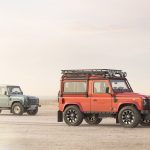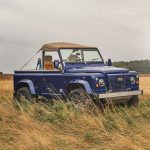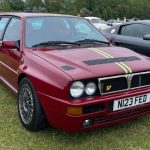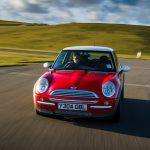Oshe Automotive’s newly built workshop near Silverstone is a long way from Africa, but there are reminders of the continent everywhere, from tribal masks hanging on the walls to stunning jungle-inspired fabrics, rich woods, and hand-painted trim pieces in vehicles it builds. The name itself comes from a god of thunder, and founder David Lane is causing quite a rumble in the world of restomodded vehicles.
Hailing from Johannesburg, Lane spent much of his childhood on the family’s remote game farm near the border with Botswana, where he developed a lifelong passion for Land Rovers.

“We had two Series IIAs on the farm,” he explains. “We also had a CJ2A Willys Jeep with an Essex three-litre V6, which I learned to drive in. We still have those two Landies and use them extensively. We do a lot of game capture and there’s a little tracker seat on the front of one of them which my boy loves.”
After a successful career in management consultancy, Lane started a restoration shop called Workshop Seventy7, building all manner of vehicles for esoteric customers. In the bays when I visit is an electric-converted Fiat 500, a BMW E9 that’s said to have an M3 powertrain installed, and even an old Ford pickup.

However, Osh is Lane’s true love. “I’ve always loved design. I studied art in school and electro-mechanical engineering. So the two kind of come together. Oshe vehicles need to look distinctive, so the styling has to be a little bit different to what everybody else is doing. It’s difficult with a Land Rover, but we use the phrase “clean and fast” with fast not being an actual velocity as such, it’s just clean and smooth. I try to get rid of the unnecessary stuff.”
That translates into a body that’s less fussy than factory-spec, updated with modern LED lighting front and rear, and with the various rugged accessory mounts and holes done away with for a more elegant look.
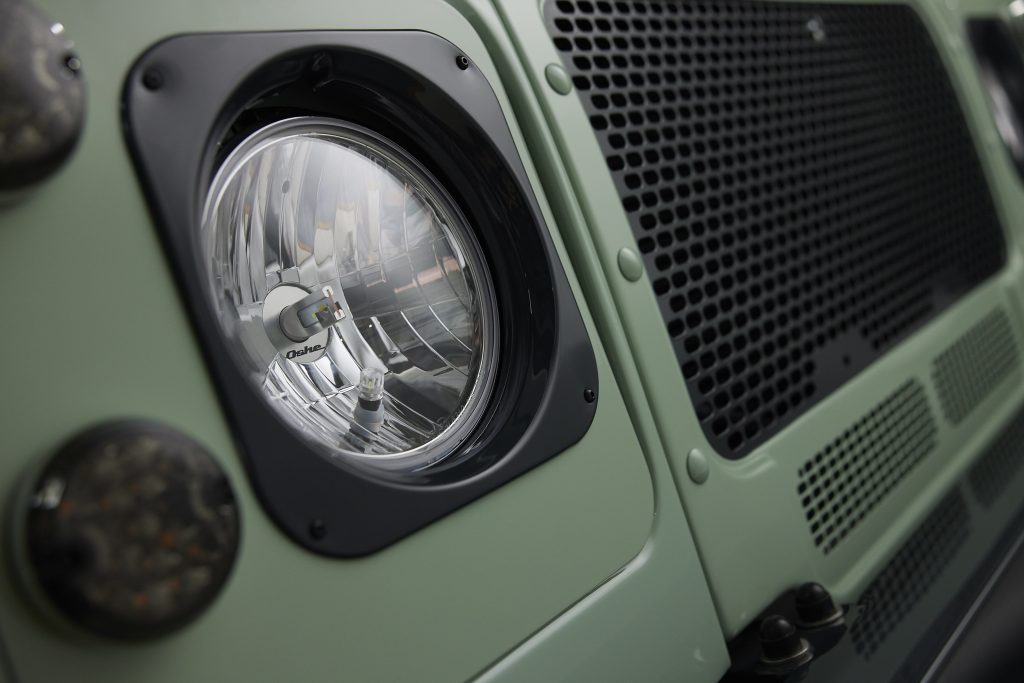
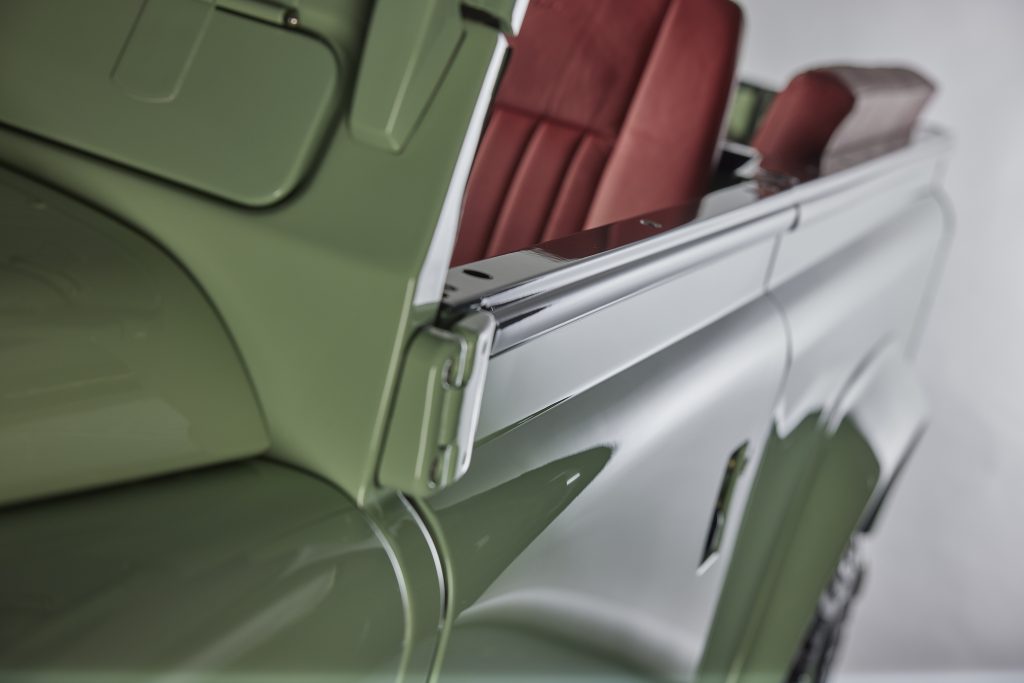
Interiors get all-new seats, hand-trimmed to customer desires and evolved for a more modern experience. Lane has really focused on the details, from the font used on the instruments to the installation of a unique art piece on the dash, created by tribal artists from South Africa. Each car will tell a story. As an example, when Lane discovered that the donor car for his first Okovango edition was once owned by a journalist, he sourced old typewriter keys for the P, R, and D indicators of the gear selector. These are embedded in a stunning curved mahogany center console.
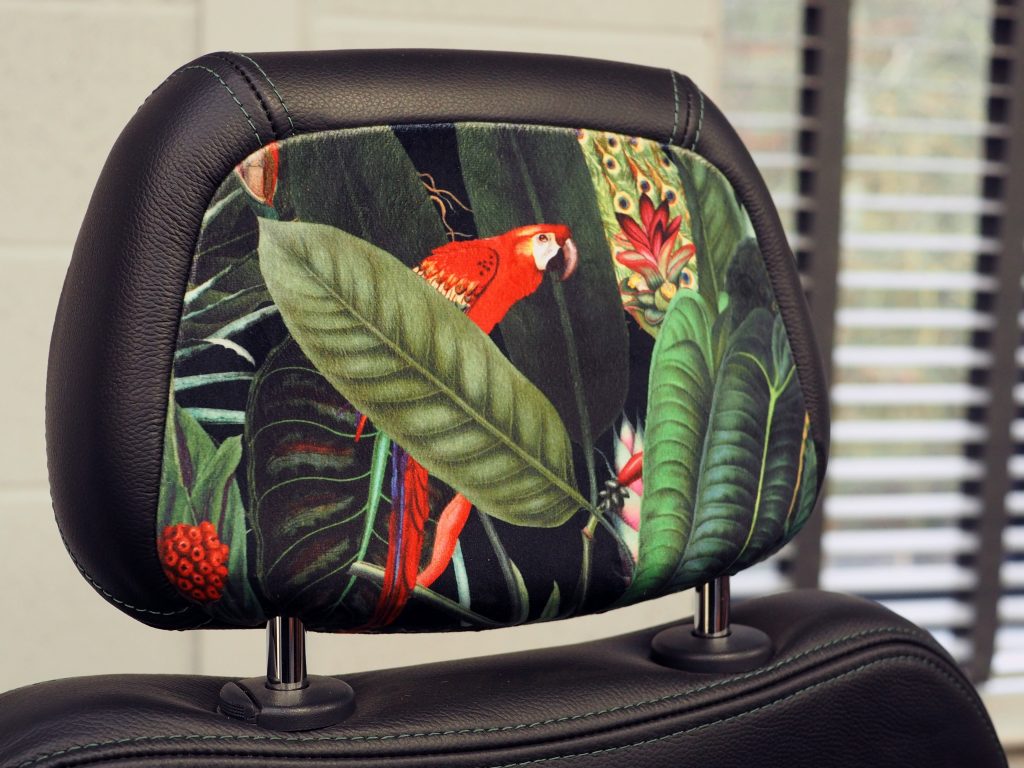
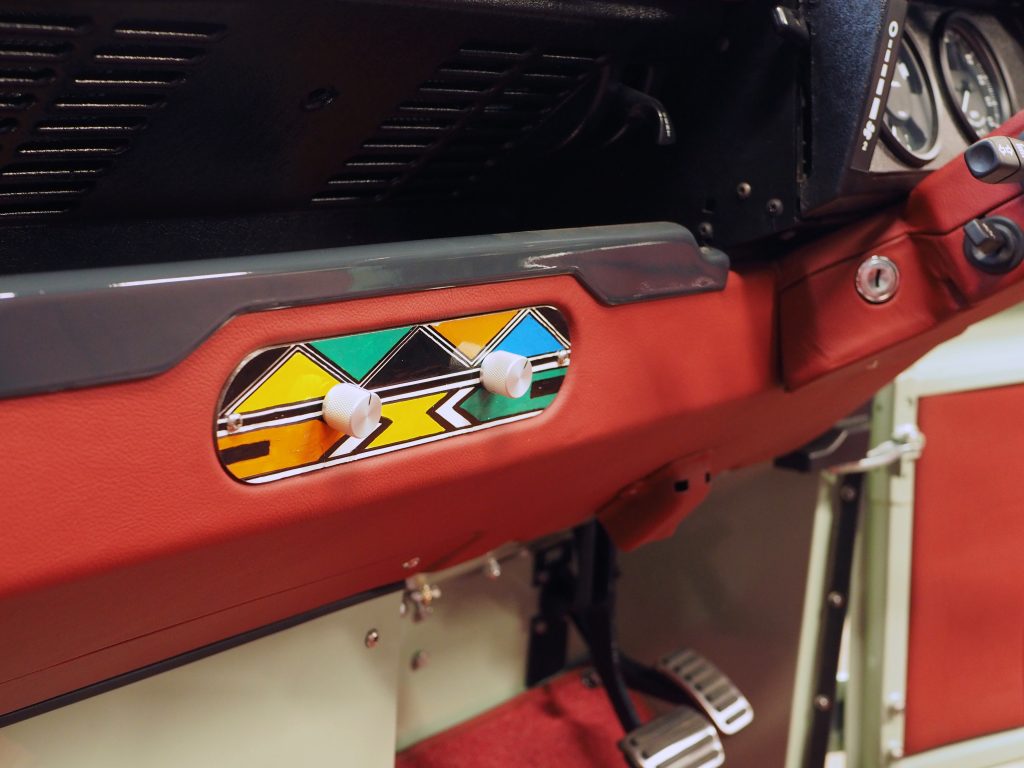
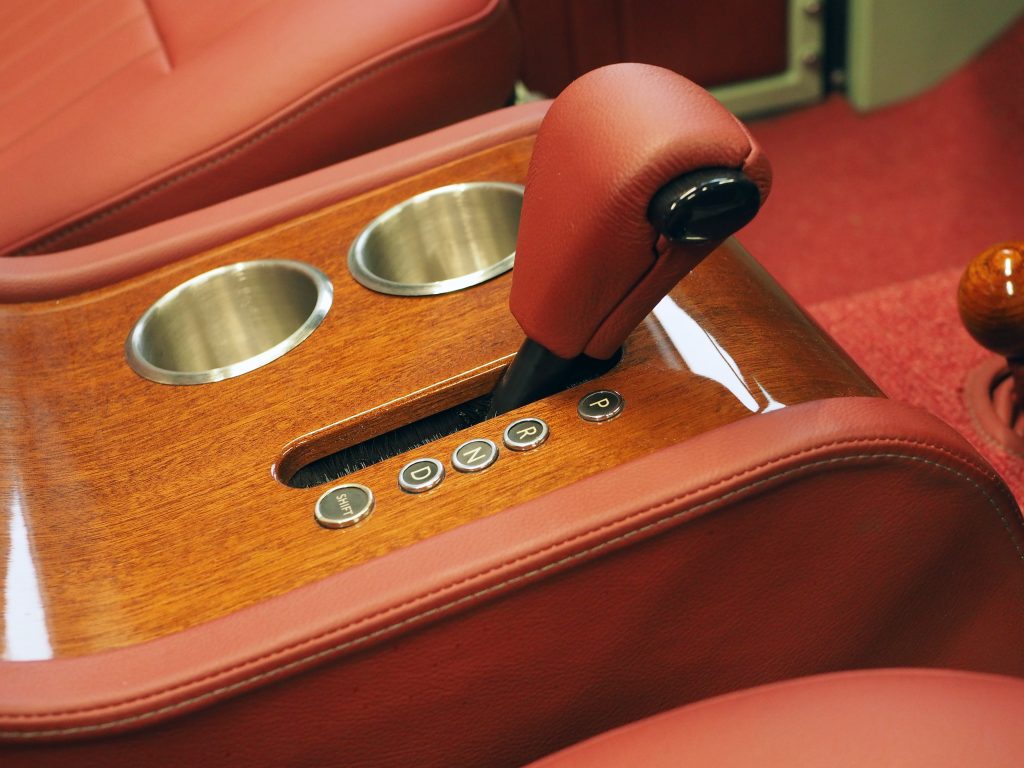
The Okovango, an open-topped short-wheelbase 90, is one of four versions, each named after a great African river. There’s the Limpopo four-door pickup and, both on the 110 chassis, the Zambezi and the Sabie.
So far, only the bikini-topped Okovango is complete. Powered by a 3.5-litre Rover V8 with Holley electronic fuel injection, it produces a not-inconsiderable 210 bhp. Lane, perhaps with an eye on the origins of the company name, has since opted to offer a more thunderous powerplant.
Future models, including the Limpopo which is in build now, will be powered by a GM LT1 6.2-litre V8 mated to an eight-speed automatic. “It’s got 450 brake horsepower and 600 newton-meters (443 lbft) of torque, which is excessive to be perfectly honest,” Lane confesses. “We may go down to the 5.3, but we chose this engine as it’s just bulletproof. It’s easy to service, repair, and get parts.”

Every Oshe Land Rover starts with an all-new chassis, to which Tractive semi-active adjustable suspension and AP Racing disc brakes are added. You’ll also find luxuries like heated seats, electric sidesteps, and electric handbrake, plus an Audison and Morell audio system.
Lane reckons the production of each model will be 25 cars, building them at the rate of three or four a year. “It’s probably going to be about 25 and that’s purely down to down to time scales. We want to keep the quality control and build them uniquely.”
Despite not having delivered a single customer car yet – and setting a starting price at £225,000, Oshe is getting inquiries from all over the world. So listen out for the thunder – it’s coming soon.


